Ten Tips from a Middle-Aged Woman Travelling on a Dime
How to survive on very little.
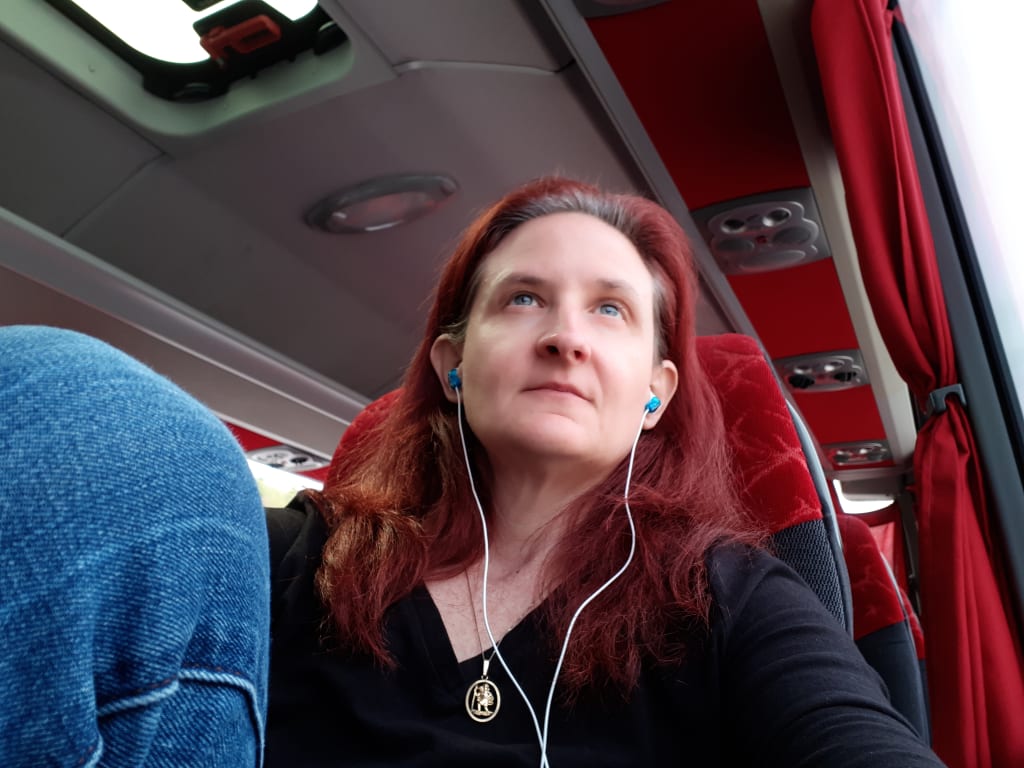
By the time most of us reach the age of forty-nine, we are relatively well-established; living in our own homes, whether owned or rented, have a little (or large) nest egg that we are growing as we work towards retirement, sometimes we share all of this with a partner or kids, possibly live close to family, and have carved out a stable little existence for ourselves — I, however, have none of these things. Instead, I have been visa hopping since 2019, travelling with very little income and seeing the world. How do I do this? It’s simple: I’m an online English as a Second Language (ESL) teacher.
Over the last few years the digital nomad lifestyle has become more popular, mainly with younger people from developed countries. It is a well-known fact that countries with stable economies come with a high price tag and many residents have become tired of the rising costs of living, slogging through each day to keep up.
Canadians and Americans often flock to countries in Central America in order to live more carefree and debt-free lives, whilst many Australians head to the islands of Indonesia, Thailand, or Malaysia, and the Brits have been making Mediterranean countries their homes for decades. Being so close to “home” makes it easy to grab a quick flight to see family or attend to affairs that may arise.
As English has become more vital for global business and study opportunities, the younger generation, often riddled with college debt and facing rising living costs, have jumped headfirst into the nomadic lifestyle as they travel extensively before settling down to raise kids or possibly climb the corporate ladder.
But, what about us older folks?
Many middle-aged parents are becoming empty nesters and are also disillusioned with the high costs of living as they hurtle towards retirement. Those of us without kids may find our friends moving away, back to hometowns or towards those island paradises that promise adventure. Some of us don’t want to move permanently but want something different to fill the gaps between holidays. Why not also jump on that travel bandwagon? Let’s be honest, as we get older we like a little comfort in our travel and a soft place to land. Here’s the deal: if you can overlook some of that and wish to immerse yourself in a local lifestyle, you can have one hell of a ride.
One of the greatest benefits of travelling as a middle-aged woman is that most customs officers, passport control officers, and general official clerks don’t bother with me much.
Older friends of mine have been chased down by border control people asking them for proof of return tickets, but I have not been asked for any such documentation in my recent travels. Being middle-aged, there is an assumption that I am settled and have a home and family to return to. Becoming invisible is a great advantage in today’s international travel climate, but I still have people coming to my aid if I look lost or confused in any given moment.
As the younger generation are more likely to do visa runs or overstay, they are being targeted in popular digital nomad regions, and retired individuals are watched more closely, especially in Central America which has become a mecca for retired Americans and Canadians.
There are a myriad of relatively inexpensive online courses you can take to achieve a TESOL (Teaching English to Speakers of Other Languages), TESL (Teaching English as a Second Language), or a TEFL (Teaching English as a Foreign Language) certification. There are slight differences in these certifications depending on where you want to teach, but all of the online teaching portals that I have investigated don’t really care which you attain. I would suggest a TESOL course as it combines TESL and TEFL, but please read this article to fully understand the differences to help you make your choice. Proof of a college degree and your certification paperwork are all that’s needed to get started. In fact, websites like Cambly are not even asking for any qualifications or experience at the moment as they desperately search for more tutors to meet the current demand.
I would, however, recommend that you complete one of the online certifications as you will need the technical knowledge of English grammar at some point in your journey, plus it makes you a far better and more popular teacher. If learning online is not appealing then enrol in an ESL certification program in countries like Costa Rica, Panama, or Mexico, and enjoy the beach lifestyle as you study. They cost a little more but I have heard that they are a blast.
Now that you are qualified, what compensation can you get teaching online? Not very much I’m afraid — that’s the truth of the matter no matter what some articles tell you. This article outlines some of the most popular online teaching platforms including their requirements and hourly rates.
Another thing that needs to be mentioned about teaching English online is the restrictiveness of it. Many guidelines state that you must be in a quiet place with a neutral background, and some applications pull data like an ox on steroids so internet connections must be strong. If I’m travelling through developing countries or planning on visiting a more rural area, I always have to message the contacts at any potential accommodation to check if their internet connections are strong enough.
Unfortunately, slow connection speeds can cause major disruptions to my teaching schedule and even lower my teacher rating. Available sessions may need to be prearranged and schedules should be opened in advance for students to make reservations, therefore, when moving between countries and cities, you cannot earn money as many digital nomads do. On the flip side, you are your own boss and can arrange your schedule to suit your needs.
Being on a limited income whilst travelling the world as an older digital nomad requires some creative accounting, so here are my top 10 tips for those of you that are tired of the humdrum of a (hopefully) post-pandemic life.
1. Teaching ESL online allows you to meet incredible people, learn new cultures, and make a wide-range of friends, as well as travel extensively.
Whilst I keep my students separate from my personal life, a handful have become friends, mostly in Turkey and Brazil. Considering that I have taught around 6,000 students with almost 3,000 hours of instruction over the past three years, the percentage of those that have become friends is less than 1%. In fact, the reason that I recently visited Turkey was due to the incredible friends that I have made there and the connection I feel to Turkish culture. They made my trip easy and painless and even scrambled over each other to help me out when I needed it. I am currently planning to spend time in Brazil next year to connect with the friends that I have made down there.
As the majority of my students are from the Middle East, South-East Asia, Turkey, and Brazil, my knowledge of these lifestyles, customs, and traditions has increased exponentially. I have lived or spent an extended amount of time in Costa Rica, Mexico, South Africa, Canada, and Turkey whilst I have been teaching ESL online. During the worst of the global pandemic, travel was significantly reduced so I was able to spend more than the visa restricted time in some of these countries. If my last flight was anything to go by, however, we are (almost) back to regular travel conditions so you should plan accordingly.
2. As accommodation is one of the most expensive costs when travelling, staying in a place for at least a month will help to overcome this obstacle.
I find that Airbnb is the most economical when looking for accommodation, and yes, many times you won’t get a refund for the first 30 days if you cancel, but the rates can be very good if you find the right host — I recommend booking with superhosts and avoiding places with no reviews. All power, water, and internet are usually included, which is very convenient, and they are flexible.
There are weekly or monthly discounts in the majority of listings, and as the monthly discounts can be quite significant, they can reduce accommodation costs considerably.
I usually reserve a room in someone’s apartment, and whilst this means that I don’t have the place to myself, I have been able to save money and have access to local advice 24/7.
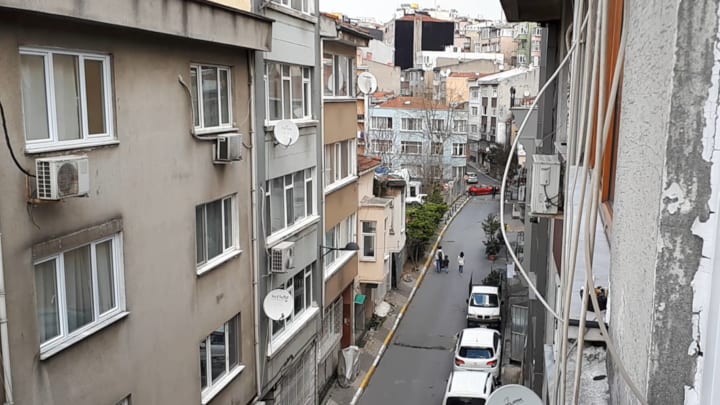
Booking a place for a month also means that you are committed to a particular city for that time and as most country’s visas are only three months, this means that you would stay in only three locations. If you plan well, however, you can make this work.
On my recent trip to Turkey, I booked a month in Istanbul as there was so much to see, and as I was working four days a week teaching, it left two days for sightseeing and one to dedicate to my writing and content creation, plus a little relaxation time. For my second month I chose Izmir due to its attractions and had many options for day or overnight trips. It also came highly recommended from the locals and the city has more sunny days than any other Turkish city according to one resident.
In my last month I moved around a little more to experience some of the best that Turkey has to offer: the beaches in Fethiye, the beauty of Cappadocia, acquaintances in Ankara, and then I headed back to Istanbul to spend some extra time with my friends and fit in a little more of what I missed in my first month.
3. “Park” your cellphone number in your country of origin and buy SIM cards and prepaid data wherever you go.
My mobile phone provider in Canada allows users to keep their number active for a small fee whilst travelling. As international roaming charges are horrendous, they would bankrupt me in less than a week. Buying a SIM card and some prepaid data as I travel ensures that I can access Google Maps and Google Translate, both vital travelling services, and keeps me connected in case I run into any trouble.
This is extremely important as an older woman travelling alone! Keeping my home country number active is also very important for apps like WhatsApp, which is the main method of communication in many countries. It is the only way that I keep in touch with friends and family in South Africa, Mexico, Costa Rica, and Turkey, and has been invaluable as I travel through Western Europe. If you have to change the associated number often, people lose track and you may miss important messages from home and friends. In addition, having a local number is helpful for arranging tours and excursions.

4. Ask the locals to help you arrange tours and buy only what you absolutely need.
When you have to move constantly, your earnings become strained as you incur additional expenses: travel costs, visa costs, storage costs, setup costs. Employing the knowledge of locals is vital in keeping costs low. For example, a few months ago I went on a day tour to the Pamukkale travertines and the Hierapolis Ancient City.
My housemate found a great day tour after searching in Turkish (the site is not available in English despite having an English-speaking guide), and it saved me $85 (US) for the same experience. I also saved $70 (US) by travelling to Ephesus with my housemate on the local metro and train systems instead of booking on a tour bus.
You can hire guides for the day in Selçuk if you wish to know more about the history of the area. If you get an early start you can also check out Şirince, an incredible little wine village close to Selçuk, and the local minibuses take you there for about a dollar
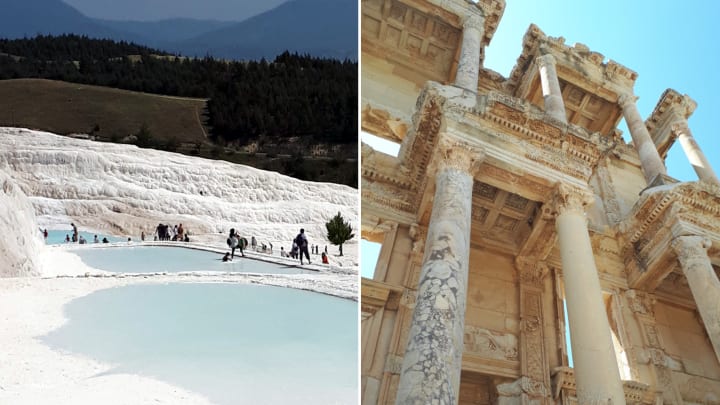
Buy only what you need for each location: food, condiments, hygiene and cleaning products often have to be left behind only to be bought again at your next destination. I can’t begin to tell you how much stuff I have given away only to purchase the same a few days or weeks later; olive oil, spices, and grains being amongst the most common. After buying a few yoga mats, I gave up and now just do yoga on a towel or the carpet! Some Airbnb hosts will tell you to help yourself to cooking and cleaning products, some will expect you to provide your own. I’ve been extremely lucky with my hosts and I try to trust my intuition when booking.
5. Be flexible with food issues.
Those of us that are vegetarian, vegan, lactose or gluten intolerant, can experience challenges in some countries. We may find it more difficult to get the products that are so easily accessible back home. I put almond milk in my coffee which proved challenging in some places in Turkey so I learned to go without when I needed. Being a vegetarian can also be challenging, but where there’s a will there’s a way, and you soon realize that every country has vegetarian food, you just need to find it.
I do, however, feel it is very important to mention that the foods in countries such as the US and Canada are packed with preservatives, food colourings, etc., and many of us feel much healthier indulging in the more organic foods found around the world. Whilst I am very cautious of what I put into my body as I try to stay as healthy as possible, I had very little concerns in Mexico or Turkey as the fruits and vegetables are far more natural and better for your body. Even candy in some countries causes less issues as the sugar content is different.
6. How to make friends and influence people…
When travelling alone, making friends and potential travel companions can be extremely important. Local friends have helped me experience things that I wouldn’t have as a tourist, like hanging out at a family farm in Cartago, Costa Rica, whilst watching an entire family gather to talk, eat, laugh, and reminisce. I watched how and what they cooked, what was served when, and spent a lot of time observing the family dynamic through body language as my Spanish is relatively pitiful.
I spent another evening listening to the sounds of rapid Turkish at an iftar dinner (the meal that breaks the daily fast during the Islamic month of Ramadan), feeling the bond shared by the diners as they slowly filled their empty bellies. The next morning I headed to a friend’s home for a traditional Turkish breakfast which is an event, not simply a meal. I was also invited to sit on the banks of the Aegean Sea on the Alsancak Çimler in Izmir to drink beer before heading to a local restaurant to eat meze and drink Rakı.
When none of the waiters speak English it’s a good indicator that you are in a restaurant favoured by locals. I learned how to make Turkish coffee from Turks and to cook Gallo Pinto from Costa Ricans.

Locals are only too happy to tell you about things that are not in the guide books, the quiet little secrets of the area or the best places for certain types of foods.
Locals will teach you how to pronounce names of people and places correctly, as well as the most appropriate way to ask for things — local customs may be very different to what translation apps and websites are giving you. In Central and South America, for example, different countries might require different expressions, despite these countries having the same native language, Spanish. “Please can I have…” in one culture may need to be changed to “please gift me…” in another. One of my Turkish friends told me they never use an expression that I was being taught on my language learning app and she gave me the correct colloquialism.
Making friends with expats before you travel to a new country can be very advantageous.
There is an abundance of Online expat groups, most of them insist on English being the sole language of communication. There is a great wealth of knowledge in these forums and the members are usually happy to share their tips and tricks with you. They will point you in the direction of private groups and others that you never even considered searching for, as well as events to meet more people. I made a few friends in Playa Del Carmen by going to the Tuesday trivia nights (in English) at a local restaurant.
If you belong to a niche community — as I’m gay, I join online LGBTQ+ groups — you may find a ready-made community of like-minded people to help you feel more “at home” when you are a stranger in a strange land. I have had the majority of my success with Meetup and Facebook groups, and attended many events that helped me in feeling less isolated as I travelled.
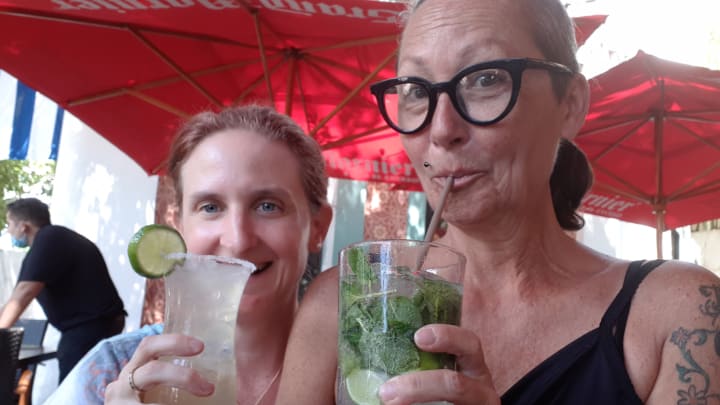
7. How to manage travel and aging.
Travelling on a dime as a middle-aged woman comes with certain difficulties as you haul luggage on and off planes, trains, and buses. Sometimes taxis are just too expensive and Uber is not accessible in countries where the taxi associations have power. Negotiating a fair ride can be challenging and I often just take public transport to sidestep this landmine. Pack light! It makes the journey a little easier. Unfortunately, this is a lesson I’m still trying to learn.
Having to travel due to visa restrictions may also mean that you move when you don’t want to or when you’re fatigued.
I have been amazed at how much strength I have found within myself when I realized that I just needed to get it done. After all, every day ends with a time to rest. It softens the blow when you arrive at your next destination and find yourself marvelling at the beauty of the architecture, artwork, mountains, lakes, or quaint villages. Pace yourself and don’t try to see everything you can. Taking a day of rest is sometimes vital and that monument, building, river, or town will still be there on your next trip.
If you require any medications or supplements, bring as many from home as you can and make sure that you have printed prescriptions for the ones that require them.
8. Buy local transportation cards in larger cities and walk as much as possible.
Buying a local transportation card is simple and often inexpensive. They are only a few dollars and you can top them up at reloading stations. If you are feeling too tired to walk back home, you can jump on the next available bus, train, or tram. Personally, I use Google Maps religiously and it has kept me on track through my endless wanderings. I walk as much as possible as there is so much you can see and investigate on foot. Often, you stumble across something spectacular when taking shortcuts through side streets.
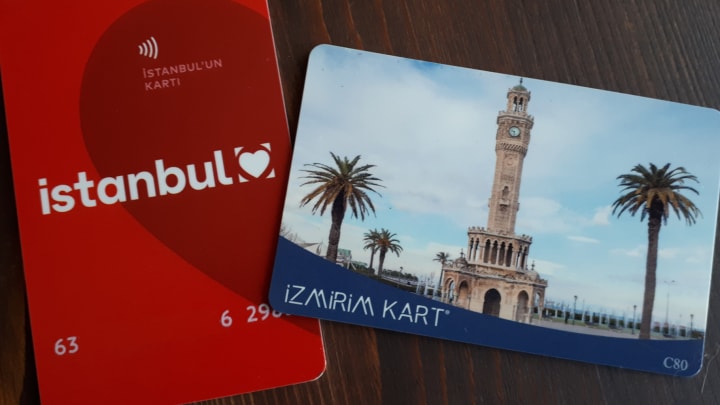
9. Get A VPN.
A VPN (Virtual Private Network) is software that protects your identity by hiding your IP address, thereby allowing you to connect to the online world safely. When we travel, particularly if we are in countries where English is not the native language, we often want to relax with some light entertainment that we can understand. There are region restrictions on services such as YouTube and Netflix so you may not be able to watch your favourite show or channel when out of your home country.
A VPN enables you to connect to servers around the world, producing a local IP address for the country you’ve chosen, thus telling the website or application you are using where you are.
If you want to watch your US Netflix account, you simply log into any American city that your VPN software has available and, boom, US permissions.
A VPN is also immensely helpful for online banking sites or government portals that require you to be on home soil to make transactions. Being locked out of an important account whilst you are travelling is not an issue you want to have.
10. Lastly, don’t expect others to understand your choices.
One of the reasons I have heard most often as an excuse for not travelling the world is the concern regarding the opinions of family and friends.
Here’s the cold hard truth — very few will understand, some may support your choices and some may try to get you to come home.
Standing firm on living your life for you requires a strength you may not think you have, but trust me, you’ll find it. The more you live your dreams, the more strength you’ll find, and to be honest, the less you’ll care!
- - -
Whilst the benefits of travelling are priceless, travelling on a dime calls for a little creative planning. There are pros and cons to this lifestyle and I’ll be honest, it’s not for everyone. Learning to travel like the locals and listening to advice willingly given from friends and strangers alike has enabled me to see things that many tourists have not.
I have also been alone in a foreign country with a basic understanding of the language and sick with Covid. The thought of going to a Mexican hospital using broken Spanish did not appeal to me and so I soldiered on. I was lucky that Tylenol and some rest was all I needed to get through it. Despite it all I would never give up on my adventures of a middle-aged woman gone mad!
About the Creator
Vanessa Brown
Writer, teacher, and current digital nomad. I have lived in seven countries around the world, five of them with a cat. At forty-nine, my life has become a series of visas whilst trying to find a place to settle and grow roots again.


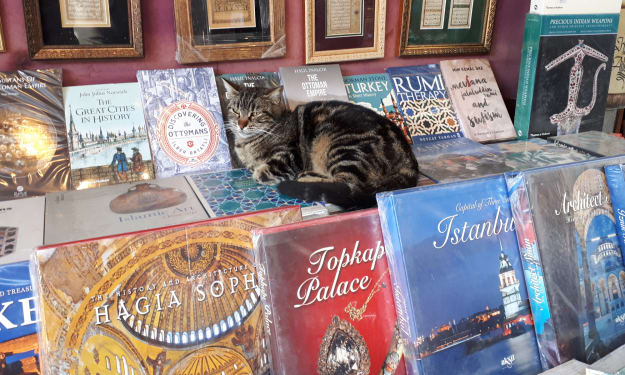



Comments
There are no comments for this story
Be the first to respond and start the conversation.